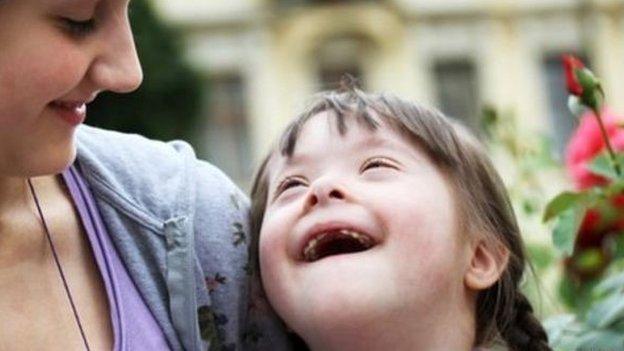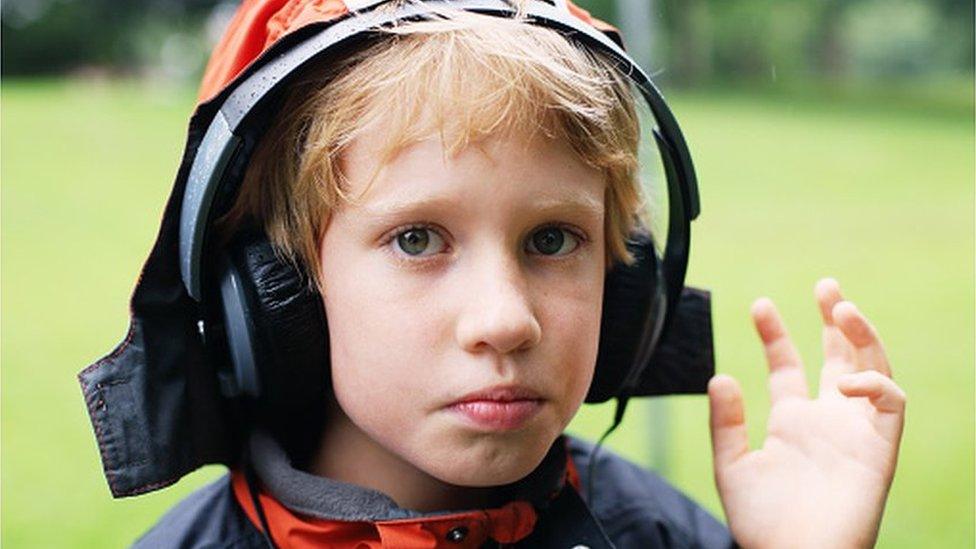What is the provision for children with special needs?
- Published

A survey has suggested mainstream schools in England are struggling to provide adequate support for children with special educational needs and disabilities.
The BBC News website answers some of the key questions surrounding the issue.
What does SEND mean?
SEND is short for special educational needs or disabilities. The term covers a wide range of conditions that mean the child concerned requires extra support in their learning.
Conditions may include problems in thinking and understanding, physical or sensory difficulties and/or difficulties with speech and language.
Emotional and behavioural difficulties are also covered.
What is the provision for these children?
There have been some changes to provision recently, as a new framework came into effect in England in September 2014.
Under the Children and Families Act 2014, SEND children with complex needs are being transitioned to education, health and care plans (EHCPs), which operate until they are 25 years old.
The aim of EHCPs is to put more emphasis on personal goals and to describe the support a young person will receive while they are in education or training. Those with an EHCP also have the legal right to ask for a personal budget, which they agree with their council.
Until they receive EHCPs, pre-existing assessments of need - known as statements or learning difficulty assessments - will remain in force. The deadline to complete the transition to EHCPs is 31 March 2018.
For those with SEND who do not need an EHCP, the former School Action and School Action Plus programmes - intervention schemes that tracked progress - have been replaced by a single school-based category for children who need extra specialist support.
Why were these changes made?
The reforms were an attempt to simplify the system. They also aimed to give children, young people and their parents a greater say in the support they receive.
The government said the reforms would "put children and parents at the heart of the system".
How many children are affected?
Department for Education (DfE) statistics, external published last year show there are more than 1.3 million children in England - 15% of pupils - identified as having special educational needs. Of these pupils, 1.1 million are in mainstream schools rather than special schools.
The figures show 2.8% of pupils in England (about 240,000 children) have statements of SEN or an EHCP.
DfE statistics indicate that autistic spectrum disorders were the most common issue for those with a statement of SEN or an EHCP.
What types of children have SEND?
Children from all backgrounds can have SEND, but government statistics show these pupils are more than twice as likely to be eligible for free school meals than those without SEN (28% compared with 13%).
Boys are more likely to have special needs - 16% of boys require SEN support compared with 9% of girls.
And the black community has the highest percentage of special needs pupils, while the Chinese population has the lowest.
Does the system work well?
Parents have long complained that they have had to battle to get the right support for children facing challenges with their education. The changes introduced from 2014 were an attempt to improve the system.
But many school leaders say they are struggling to offer adequate support for SEND pupils. A survey by The Key found 82% of mainstream schools in England said they did not have sufficient funding and budget to provide for these pupils.
What does the government say?
The DfE says it has protected the overall school budget and increased funding for children and young people with high needs by more than £90m this year.
It says additional funding, to help councils implement the reforms, has included a £70m SEN Reform Grant in 2014-15 and three "new burden" grants (£45m in 2014-15, £32m in 2015-16 and £35.8m in 2016-17) to pay for additional costs of implementation.
The government also says SEND training will form part of the new core content for initial teacher training.
What happens elsewhere in the UK?
The systems in Wales and Northern Ireland are broadly similar to England, although they both have their own codes of practice.
In Scotland, the concept of special educational needs has been broadened to "additional support needs" and includes factors affecting a child's learning such as bullying, bereavement, family being in care or being a teenage parent.
- Published2 June 2016
